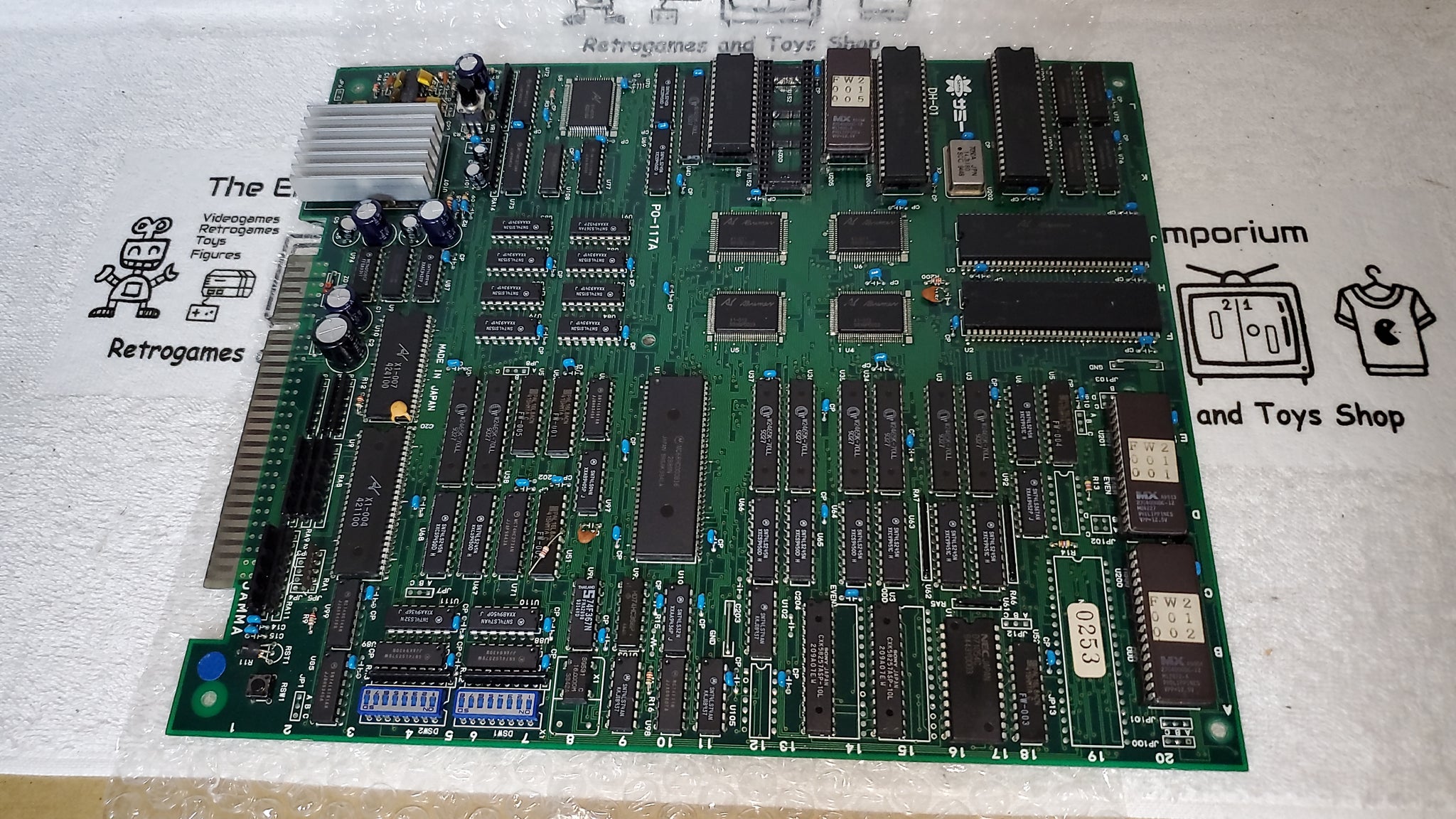

Newly dumped versions of supported arcade games include prototypes of Halley’s Comet (Taito) and Dog Fight (Orca), a newer version of the original Master Boy (Gaelco), and the Korean release of Raiden II (Seibu Kaihatsu). And speaking of rare games from Spain, two more Magnet System titles have been dumped: A Day in Space and The Burning Cavern. Unfortunately the sound ROMs were missing, so you won’t be able to hear Chuby speak, and we still need to be on the lookout for the export version known as Clean Octopus. Another core improvement is support for TAP/TUN networking on Windows, providing a big performance improvement when connecting an emulated system to a network on the host machine.įrom the department of things considered lost to time, MAME 0.201 allows you to play as Chuby the octopus, in the incredibly elusive Spanish game Night Mare.

It’s particularly noticeable when using cropped artwork, and there’s no longer a big performance penalty for bringing up the menu over the emulation on macOS.

In a last-minute update, we slipped in a major performance optimisation for bgfx video output. It’s the end of another month, and time for your scheduled MAME release, with more of everything we know you love. The sheer amount of work put into MAME is outstanding and we’d like to thank everyone involved for their hard work! We have here complete ROMSETS merged and split (split only available on usenet (nzb) at the moment – find out more about high speed downloads instantly via usenet here).
#Mame 0.207 roms download
The latest MAME ROMSET (requires version of MAME to play – download from MAMEDEV) is sporting some huge changes (see below). In a future dev cycle, a similar thing will happen with the sound cores.Ĭlrmamepro ist aktuell bei Version 3.Vertical Raspberry Pi 3b+ Retropie Image – 128gb…
#Mame 0.207 roms code
This is mainly an internal structural change, but in the end removes some redundant code and behavior. The second big change is that the CPUs are now full-fledged devices, and participate like all other devices in the system configuration.
#Mame 0.207 roms driver
As a result of this change, it should be possible in the coming year to finally write a driver that runs two full machines simultaneously. Frankly, I never thought we'd hit this point so quickly, so my hats off to Atari Ace who helped push through the final round of changes needed to make this happen finally. The most major change is the final retirement of the global Machine pointer, which has been part of MAME for many years. These should be the last "huge" changes of this dev cycle. Nicola Salmoria is still the coordinator of the project.Īs of this release, we have two more major changes. At the moment, there are about 100 people on the team, but there is a large number of contributors outside the team too.

The huge success of MAME would not be possible without the talent of the programmers who joined to form the MAME team. Being able to play the games is just a nice side-effect. There are already many dead arcade boards, whose function has been brought to life in MAME. Also a work-in-progress -page exists, if you really want to know the latest information.Įven though MAME allows people to enjoy the long-lost arcade games and even some newer ones, the main purpose of the project is to document the hardware (and software) of the arcade games. However, now the beta designation has been removed in favor of a good old 0.xx version number. To help the agony of the users, a public beta system was used, with a beta release happening every 2-3 weeks on an average. Because MAME releases happen whenever they are ready, at one point the wait between new versions was almost 4 months. The current version supports 3469 ROM sets, 1959 unique games.
#Mame 0.207 roms portable
Using a modular and portable driver oriented architecture with an open source philosophy, it soon grew into immense proportions. The first official release was MAME 0.1, which was released on the evening of February 5th, 1997 (23:32 +0100). He named the accomplishment by the name of Multiple Arcade Machine Emulator, or MAME for short (pronounced as the word 'maim' in English, other languages may differ). On December 24th, 1996, Nicola Salmoria began working on his single hardware emulators (for example Multi-Pac), which he merged into one program during January 1997.


 0 kommentar(er)
0 kommentar(er)
